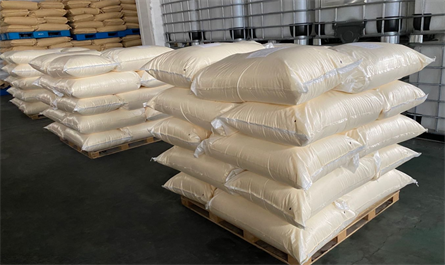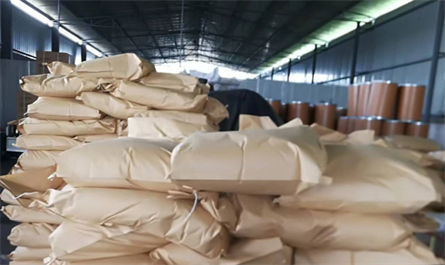Functions of Paclobutrazole (Paclo)
Paclobutrazole (Paclo) is a low-toxic and highly effective plant growth retardant. It has a long efficacy period and a very wide spectrum of activity, and is easily absorb by the roots, stems and leaves of plants.
Paclobutrazole (Paclo) is use in various crops such as rice, wheat, vegetables, and fruit trees. Paclobutrazole (Paclo) is a broad-spectrum plant growth retardant. It can inhibit the synthesis of endogenous gibberellins in plants and reduce the division and elongation of plant cells. After being absorbed by roots, stems, and leaves, it dwarfs, promotes branching, and rooting to increase chlorophyll content. It can delay leaf aging and enhance stress resistance. It is mainly used on rice, rape, soybeans and other cereal crops by spraying or soaking seeds.


The powerful effects of Paclobutrazole (Paclo)
Paclobutrazole (Paclo) is a plant growth regulator. It mainly inhibits the biosynthesis of gibberellins in plants, slows down plant growth, controls the elongation of crop stems, shortens crop internode, promotes plant tillering, and can promote plant flower buds differentiation, increase plant stress resistance, increase yield and other effects.
1.Paclobutrazole (Paclo) changes the level of endogenous hormones
Paclobutrazole (Paclo) can inhibit the synthesis of gibberellin, delay growth, shorten internode, and dwarf plants. It reduces the synthesis or metabolism of indole acetic acid, increases the endogenous abscisic acid content of plants, and can also regulate the ethylene release of plants.
Paclobutrazole (Paclo) can make plant leaves turn dark green, increase the content of photosynthetic pigments such as chlorophyll, and increase the nucleic acid and protein content in the plant. It can improve the anti-aging ability of plants and make plants have strong vitality.
2.Paclobutrazole (Paclo) improves plant stress resistance
Paclobutrazole (Paclo) can improve plants' ability to resist stress and pathogenic bacteria. It can cause plant epidermal cells to swell, causing stomata to be squeezed and sunk, causing increase stomatal resistance, reduce transpiration, and reduce water loss. By alleviating water loss, the stress on plant cells is reduce, normal growth and development can proceed, and the plant's own ability to resist drought is enhance.
The application of Paclobutrazole (Paclo) can improve the plant's resistance to cold and freezing damage. The application of paclobutrazole increases the content of the stress hormone abscisic acid in the plant and reduces the damage to leaf cell membranes caused by low temperature.
3.Paclobutrazole (Paclo) promotes lateral bud germination and growth
Paclobutrazole (Paclo) can inhibit apical dominance and promote the germination and growth of lateral buds. For example, the application of Paclobutrazole (Paclo) can cause rice seedlings to tiller early or to tiller more often, the plants become shorter, and the base of the stem becomes thicker.
4.Paclobutrazole (Paclo) has bactericidal effect
Paclobutrazole (Paclo) was first developed as a fungicide. It has inhibitory activity against more than 10 pathogenic bacteria such as rape sclerotinia, wheat powdery mildew, rice sheath blight and apple anthracnose. It has broad spectrum antibacterial properties and can also control grass. Harm, make weeds dwarf, slow their growth, and reduce damage.
5. Application of Paclobutrazole (Paclo) on fruit trees
Control branch growth and dwarf fruit trees; promote flower bud differentiation and increase flower volume; adjust fruit setting rate; change the harvest period to improve fruit quality; reduce summer pruning; and improve fruit trees' drought and cold resistance.
Paclobutrazole (Paclo) is use in various crops such as rice, wheat, vegetables, and fruit trees. Paclobutrazole (Paclo) is a broad-spectrum plant growth retardant. It can inhibit the synthesis of endogenous gibberellins in plants and reduce the division and elongation of plant cells. After being absorbed by roots, stems, and leaves, it dwarfs, promotes branching, and rooting to increase chlorophyll content. It can delay leaf aging and enhance stress resistance. It is mainly used on rice, rape, soybeans and other cereal crops by spraying or soaking seeds.


The powerful effects of Paclobutrazole (Paclo)
Paclobutrazole (Paclo) is a plant growth regulator. It mainly inhibits the biosynthesis of gibberellins in plants, slows down plant growth, controls the elongation of crop stems, shortens crop internode, promotes plant tillering, and can promote plant flower buds differentiation, increase plant stress resistance, increase yield and other effects.
1.Paclobutrazole (Paclo) changes the level of endogenous hormones
Paclobutrazole (Paclo) can inhibit the synthesis of gibberellin, delay growth, shorten internode, and dwarf plants. It reduces the synthesis or metabolism of indole acetic acid, increases the endogenous abscisic acid content of plants, and can also regulate the ethylene release of plants.
Paclobutrazole (Paclo) can make plant leaves turn dark green, increase the content of photosynthetic pigments such as chlorophyll, and increase the nucleic acid and protein content in the plant. It can improve the anti-aging ability of plants and make plants have strong vitality.
2.Paclobutrazole (Paclo) improves plant stress resistance
Paclobutrazole (Paclo) can improve plants' ability to resist stress and pathogenic bacteria. It can cause plant epidermal cells to swell, causing stomata to be squeezed and sunk, causing increase stomatal resistance, reduce transpiration, and reduce water loss. By alleviating water loss, the stress on plant cells is reduce, normal growth and development can proceed, and the plant's own ability to resist drought is enhance.
The application of Paclobutrazole (Paclo) can improve the plant's resistance to cold and freezing damage. The application of paclobutrazole increases the content of the stress hormone abscisic acid in the plant and reduces the damage to leaf cell membranes caused by low temperature.
3.Paclobutrazole (Paclo) promotes lateral bud germination and growth
Paclobutrazole (Paclo) can inhibit apical dominance and promote the germination and growth of lateral buds. For example, the application of Paclobutrazole (Paclo) can cause rice seedlings to tiller early or to tiller more often, the plants become shorter, and the base of the stem becomes thicker.
4.Paclobutrazole (Paclo) has bactericidal effect
Paclobutrazole (Paclo) was first developed as a fungicide. It has inhibitory activity against more than 10 pathogenic bacteria such as rape sclerotinia, wheat powdery mildew, rice sheath blight and apple anthracnose. It has broad spectrum antibacterial properties and can also control grass. Harm, make weeds dwarf, slow their growth, and reduce damage.
5. Application of Paclobutrazole (Paclo) on fruit trees
Control branch growth and dwarf fruit trees; promote flower bud differentiation and increase flower volume; adjust fruit setting rate; change the harvest period to improve fruit quality; reduce summer pruning; and improve fruit trees' drought and cold resistance.



